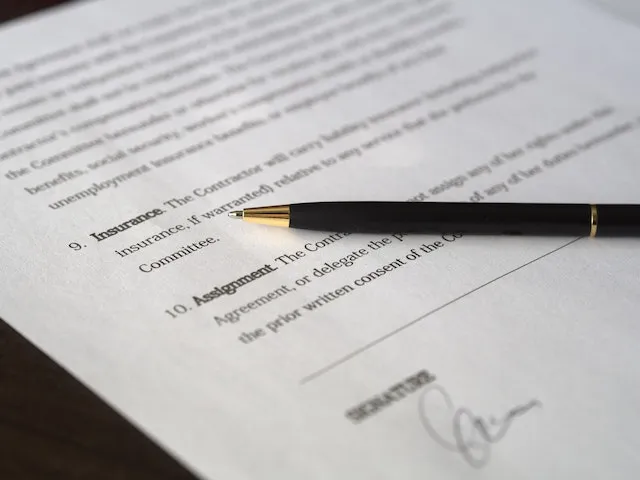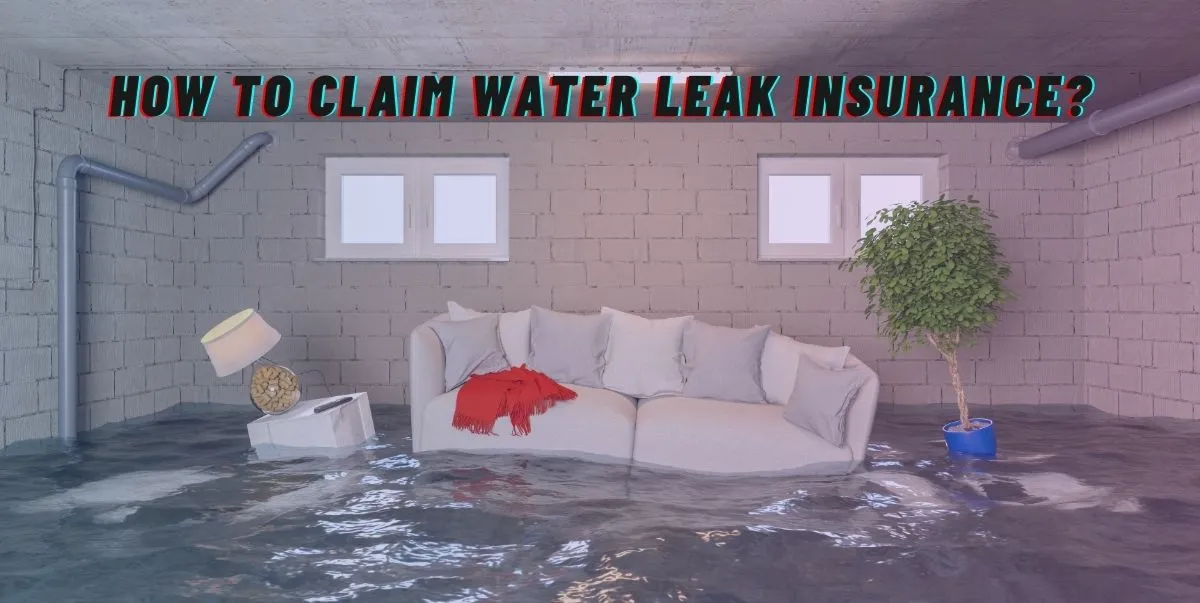
How Do I Know If I Have Gap Insurance? (Updated 2023)
Table of Contents Most insurance policyholders pay little heed to their insurance policy’s coverages, deductibles, and terms and conditions. As a result, many are unsure
Personal Injury and Property damages are sad realities of this world. Most insured people will likely apply to claim their insurance following these unfortunate events, and that is where the Insurance Adjusters play a critical role.
In most cases, these adjusters review all the pertinent documents of the insurance holders and reach a fair and just conclusion.
However, there are many instances where the adjusters are not fair in their assessment and use unethical practices to their benefit.
Don’t Worry! You have come to the right place.
Here, we will discuss all the precautionary measures insurance holders should take and the tactics they should use to instill fear in the minds of the adjuster so they are not motivated to dupe you of your rightful claim.
Insurance adjusters should acquire the relevant knowledge and follow the strategic plan to know how to scare insurance adjusters.
They can also hire a professional lawyer, such as a personal injury lawyer, to safeguard their interests and ensure a smooth claim process and a favorable settlement.
Before we discuss the process in detail of how to scare insurance adjusters, it’s crucial to know who these insurance adjusters or claims adjusters are, who they work for, and what types of adjusters exist.
When you claim an insurance policy that you took from an insurance company, a person representing that insurance company is tasked to investigate why you are claiming the insurance, evaluate the quantum of the damage, and negotiate and adjust the final value of the claim.
This representative is known as an insurance adjuster. They are mainly responsible for determining whether your claim is valid and the amount of money you should get under the terms and conditions of the contract.
Who Recruits Them?
Most insurance companies have their insurance adjusters as their employees. However, some insurance companies sometimes hire adjusters from Third Party Administrators or TPAs.
In some cases, they also hire independent adjusters, who simultaneously handle the insurance claims process for many insurance companies.
Adjuster Types: Exploring the Relevance and Impact
Most adjusters employed directly by insurance companies are compelled to issue the claim as laws bind them. They also have the authority to validate the claim and the amount that the claimant will get.

Independent adjusters, on the other hand, have less decision-making power.
They usually convey the information to someone who makes the decision which makes the process lengthy, and often the insurance holder doesn’t get the correct value as the person making the decision is not directly involved.
Moreover, the salaried direct company adjusters must resolve the claim process as part of their job.
On the other hand, independent adjusters are paid commissions and are often paid incentives to keep the claim process open and eventually proceed to litigation.
If you want to know how to scare an insurance adjuster, then know what the key responsibilities of an adjuster are.
One thing to remember is that they are working for the company, so they must save the company’s money by offering the claimant a lowball amount and getting it approved by them as quickly as possible.
However, it is well within a claimant’s rights to reject the offer and seek a claim value that they deem fair.

In the first step, we understood that adjusters often reduce the settlement amount to save the company’s money. Let us now understand the tactics involved.
Knowing these tactics can aid you in formulating your strategy when communicating with the claims adjuster and taking appropriate steps to get the maximum claim value if and when they pressure you for a lowball offer.
One common tactic all adjusters use is trying to settle the claim as soon as possible. Hence, they often pursue claimants to close the claim process at the earliest.
Hence, if you want to learn how to scare an insurance adjuster, slow the process of accepting the settlement offer.
It is also essential to read through the minute details mentioned in the claim and look for opportunities to say no if they offer a lower claim than expected.
So, when a settlement is offered, don’t rush to respond; take your time and read thoroughly.
Also, when claimants don’t respond immediately, it makes them conscious and fidgety. They think that they are not responding as they will reject the offer.
Sometimes, the claimants may need further medical treatment, increasing the insurers’ cost.
Hence adjusters fear that they are procrastinating as they might need more medical assistance, which would increase the claim value.
On the other hand, if the claimants accept the offer as soon as they are offered, the insuring company has covered the liability and won’t cover any costs for any extended treatment that the claimant may require.
It is essential to reject a lowball offer in writing as that reflects a solid message to the insurance company that the claimant is not easily persuaded and is ready to confront them for a fair claim value. It instills a lot of fear in the adjuster as well.
The claimant or the claimant’s lawyer may include the following things in the rejection letter to the insurance companies.
As it is quite a daunting task to communicate with the adjusters who are professional negotiators and write these letters for your legal claim, the ideal thing to do would be to take the help of a personal injury attorney.
They can draft a compelling letter and place a counteroffer on the table.
A letter for your personal injury claims from an experienced attorney carries more weight, and even the adjusters would refrain from forcing you to accept an offer that is not fair for the claimant.

When someone meets with an accident, they don’t know how long it will take to recover from the injuries. Some might recover in a week, and some might take years.
In rare cases, some may have lifelong injuries. Hence, you must finish your treatment before accepting a settlement offer.
As the long-term treatments are costly, adjusters try to enforce a quick claim settlement which would rid the insurers of their liabilities and reduce the cost to the company.
If you want to know how to scare insurance adjuster, tell them you will wait until your treatment is over to accept the settlement offer.
It makes them nervous and sends a strong message that they cannot take you for granted and offer a quick lowball offer.
Filing for a claim is okay, but only accept the offer once the treatment ends.
There might be many instances where the adjuster may exhibit unethical behavior and treat the claimant with fear and force.
It is mainly done to make the claimants afraid and force them to accept a lowball offer quickly and close the claim process so that they can charge their commission.
So, you must report such unprofessional behavior, which would not only scare them but they would also refrain from harassing the claimant any further.
Some of the common ways they try to intimidate claimants are as follows:
The best way to counter this is to report the adjuster and file a bad-faith claim with the insurer. Include all the reasons and the details of the adjusters, like names and what they did.
If the investing team finds your claims valid, the insurance company is liable to pay additional compensation on top of the claim value as per your insurance policy.
The Top 5 Personal Injury Insurance Companies are as follows:
Since we have already discussed how to scare insurance adjusters by following specific steps, let us now understand what not to do when dealing with adjusters.
Always remember that insurance companies are looking for ways to not pay the claimants by proving they are not liable for the injuries or damages caused.
Hence it is crucial not to discuss anything with your adjuster even if you feel that there is a slight chance of you being at fault. Do not do it either over the phone or in writing.
Suppose, unfortunately, you do it. In that case, an investigation will be launched, and your expression of guilt and admission of fault will be used against you to deny any personal injury or property damage claim.
It is important to remain calm and composed and not lose your cool even if you receive a meager settlement offer against your claim.
It is common for emotions to take over as claimants are already stressed because of the injury or the damage. So, it is vital to remember not to yell, scream, abuse, or use expletives against the adjusters or the insurers and jeopardize the insurance claim process.
It’s always better to take time, read thoroughly, prepare a defense, and reject the offer through the proper channel following the correct process.
The best thing to do at this juncture would be to appoint a lawyer and ask them to reply with a rejection letter.
Knowing how to scare insurance adjuster through different tactics to ensure a fair settlement offer is okay, but one should never resort to threats or violence against the adjusters.
All the things you have been warned to avoid when the adjuster does should not be done from your end to the adjuster. You should never verbally abuse or exhibit any violence toward the insurance claim adjusters.
Not only will this jeopardize your claim, but it will also land you in legal trouble.
One of the biggest mistakes a claimant can make while communicating with an adjuster is apologizing and saying sorry.
You may think you’re being open-minded by expressing your emotion, but it may mean an entirely different thing to an adjuster.
They may interpret it as an admission of your fault and may conclude that you are responsible for the mishap.
So, remember, NEVER say sorry.
It is a frequent occurrence amongst humans to lose patience, especially when you are filing an insurance claim with your insurance company.
There are various reasons for this, such as your present financial condition, thinking that this is the best you deserve, or your claim may get rejected.
However, it is essential to focus on getting a fair settlement, be patient, and not give up so easily.
If you stay put, give time to read the offers, and send an appropriate reply, it will ensure that you are not trapped in a lowball offer and receive a fair and just settlement offer.
The most productive and fruitful way to strike fear in the adjusters is to go to a reputed law firm with a high success rate and hire a lawyer or an accident attorney with experience to do your bidding.
They can help with the following:

Overall, hiring a lawyer gives you peace of mind and the best settlement offer while you can focus on your recovery.
When talking to an insurance adjuster, try to avoid the following mistakes:
If you are someone who is not easily swayed and doesn’t accept the lowball offer made by the insurance company, then they may resort to scare tactics. They may accuse you of insurance fraud, including inflating the cost of medical expenses and even threaten legal action.
Always provide factual answers without including your personal opinion. Remember to note the adjuster’s name and details for future reference. In case you don’t know the answer to any question, inform the adjuster about the same.
To seek an increased settlement value, do the following:
One thing you should never do is admit fault to an insurance carrier. As an accident victim, you can mention your injury but tell them you are unsure about the at-fault party, even if they ask. Also, consult your lawyer before signing any document that allows them to check your medical records.
Read More:
It’s essential to know how to scare insurance adjusters as it would help you protect yourself from these adjusters and also aid you in getting fair compensation based on the scale of your injury or property damage.
Not knowing these or negligence to understand the process can put you at a significant disadvantage and may even result in accepting a lowball offer.
Hopefully, this guide has provided you with all the knowledge required to tackle an adjuster and claim the best settlement offer against your claim included in your insurance coverage.
Disclaimer: The information provided in this article is for informational purposes only and should not be construed as financial advice. The author’s opinions are their own and should not be taken as a recommendation to invest in any particular product or service. It is strongly advised that you consult a financial advisor before making investment decisions. Investing always carries risk, and it is up to each individual to consider their options and make informed choices carefully.
Share this post:

Table of Contents Most insurance policyholders pay little heed to their insurance policy’s coverages, deductibles, and terms and conditions. As a result, many are unsure

Table of Contents Insurance is an integral part of our modern life, and homeowners insurance is one of the most important insurances that have become

Table of Contents I interviewed an experienced insurance agent from a reputed global insurance company who pointed out why many young insurance agents leave their